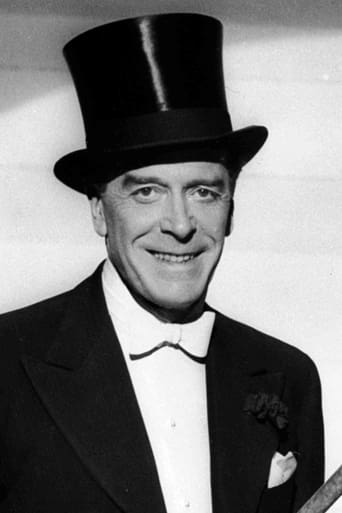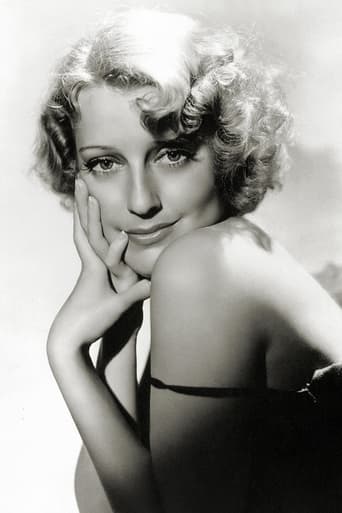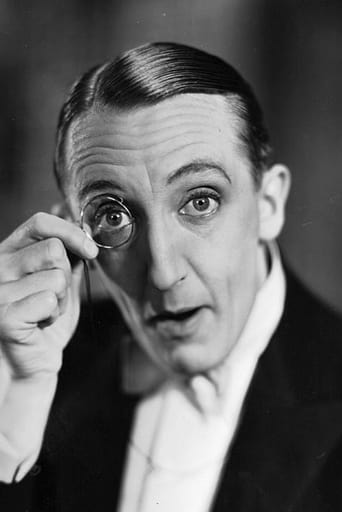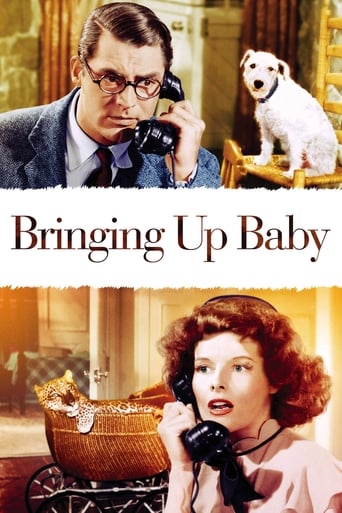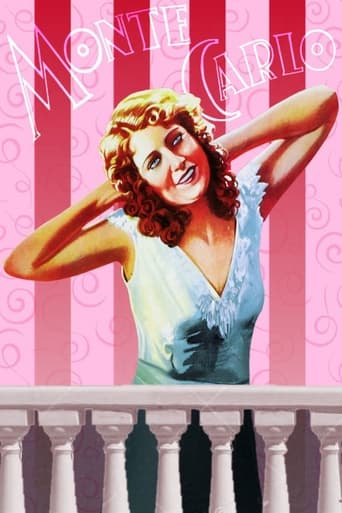
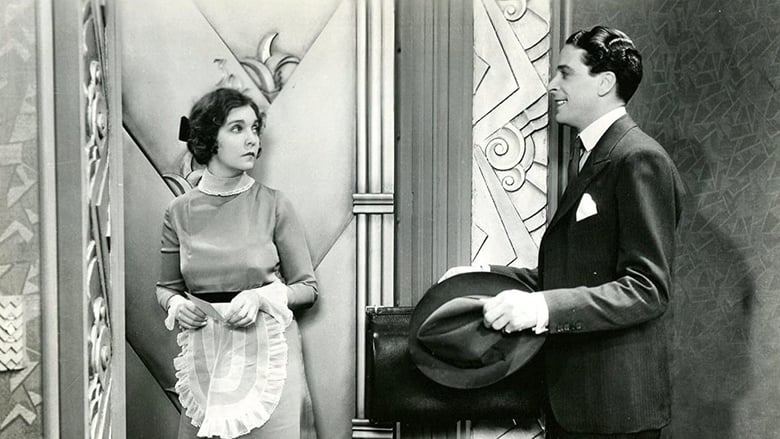
Monte Carlo (1930)
A countess fleeing her husband mistakes a count for her hairdresser at a Monte Carlo casino.
Watch Trailer
Cast
Similar titles
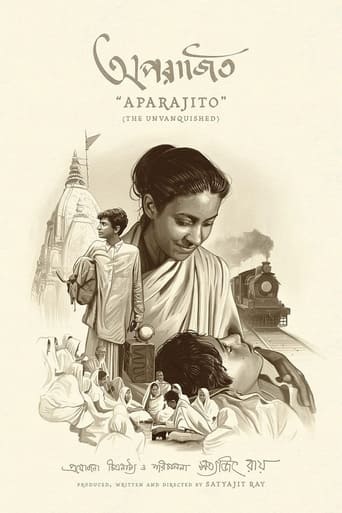

Reviews
Very Cool!!!
Admirable film.
By the time the dramatic fireworks start popping off, each one feels earned.
The movie's neither hopeful in contrived ways, nor hopeless in different contrived ways. Somehow it manages to be wonderful
This time it's the beautiful and witty early Jeanette MacDonald, before Nelson Eddy came along - in an unusual Lubitsch romantic comedy musical! A high society romp involving financially embarrassed Countess Helene (Jeanette MacDonald) bolting during a wedding to stuffy but rich Duke Otto (Claude Allister). Her idea is to escape to Monte Carlo and gamble herself back into the upper circles, without depending on men in her life. It doesn't work out, due to many twists of the wheel as well as the plot, involving Count Rudolph (Jack Buchanan) - and Duke Otto - now both after her. Lots of sophisticated laughs at the antics of the high-born, sort of verbal slapstick. And some great music too, even beyond the blue horizon!
Found in the Eclipse set of Lubitsch Musicals, this is probably the least good movie in there. The first thing that strikes you is that it could be just as good as the other three (Love Parade, One Hour with You and The Smiling Lieutenant) if Lubitsch had cast Maurice Chevalier as the lead once again. I don't know the story, but it seems meant for the charming Chevalier, and instead went to Jack Buchanan (best known for playing the Orson Welles-based character in The Bandwagon). Buchanan is, to be polite, not leading man material. He comes off here as a sniveling wimp. In fact, he's so similar in character to his rival, goofy Claud Allister, that you have to wonder what Jeanette MacDonald is getting by the trade. I'm sure this pretty much ruined the film for me the first time around, but, I have to say, I got over it this time. I like the film a lot - it's still very charming. Jeanette MacDonald is wonderful again, and the songs are great. Buchanan is a black hole of charm, but the rest of the film escapes from him.
What is there about Lubitsch endings? In this 1930 film Monte Carlo we're in the Monte Carlo opera house watching two people as they watch the end of the operetta, Monsieur Beaucaire. In one box is the handsome and debonair Count Rudolph Falliere. In another box is the beautiful and sad Countess Helene Mara. Monsieur Beaucaire is all about a nobleman who pretends to be a hairdresser so he can be close to and woo a noblewoman. Lubitsch's Monte Carlo is all about well, a nobleman who pretends to be a hairdresser so he can woo a noblewoman. The situation as it plays out for us observers is amusing, clever and sophisticated. We wind up thinking, because we know what's going on, that perhaps we're amusing, clever and sophisticated, too. It's a wonderful way to end the movie.How we got to this point is just about as amusing as the ending. Countess Helene Mara (Jeanette MacDonald) left her twit of a fiancé, Prince Otto Von Seibenheim (Claude Allister) at the alter. Otto is the product of far too much noble inbreeding. She hops a train with her maid and decides to go to Monte Carlo where she will, of course, make piles of money at the casino. Count Rudolph, a charming and rich fellow, falls for her as soon as he sees her. Without a proper introduction, of course, he decides he must take the place of her hairdresser in order to meet her. Before long, he has also taken the place of her lackey and her chauffeur and speculates about the moment when he'll take the place of her maid. And pursuing Helene Mara is her fiancé, the dim-witted Prince Otto. There are some songs, some kisses, much nearly transparent lingerie worn fetchingly by Helene Mara, a number of cocked eyebrows by Rudolph (now Paul the hairdresser) and much light-hearted suggestiveness by Lubitsch. "Oh, oh, oh, oh... ohohohoo... that feels good!" says Helene Mara, while her maid listens behind a closed door. "... oh, oh!...that feels even better... you must have electricity in your hands! I've never felt like this before!" Lest we speculate with as much interest as the maid, Paul is merely massaging Helene Mara's scalp. Unlike Monsieur Beaucaire, this couple has a happy ending because, reasonably enough, that's what they want.Jeanette MacDonald gives a first-class performance that combines haughtiness, longing and sexuality. She looks great in her scanties. When she hides the key to her bedroom so that she won't be tempted to open it and let Paul enter, it involves three keys, each smaller than the last, two boxes and a pillow. MacDonald is just as delightful in the morning trying to figure out what she did so she can get the bedroom door unlocked.For modern American audiences, Jack Buchanan probably is something of an acquired taste. In Britain during the late Twenties and Thirties he was a huge star, particularly on the British stage. Critics called him the English Fred Astaire. The upper U accent, the careless confidence, the high-nose nasality, the slight hint of upper-class entitlement are a little dated today. Like many leading men of the Twenties and Thirties, before the style went out of fashion, he seemed to promise for duchesses and shop girls alike days of laughter and nights of exquisite passion, without dwelling too much on the mechanics of that passion. While his style is now dated, watch how he uses inflections, a quick expression, some physical business, how he laughs. Buchanan knew what he was doing and he was good at it. There are several things of his from the Thirties that you can see on YouTube. Nowadays he's better known as having played Jeffrey Cordova in The Bandwagon with Astaire.You'd have to have a severely ingrown toenail not to watch Monte Carlo with a smile, especially that ending.
The first twenty minutes of Monte Carlo is so enjoyable and promising, you might think you're watching one of Ernst Lubitsch's best musical comedies. The film kicks off with a highly amusing sequence at the palace of a silly aristocrat, where a wedding ceremony goes disastrously awry. First, the well-wishers are doused by a sudden rainfall (as we see a banner proclaiming "Happy is the Bride the Sun Shines On"), and consequently the members of the processional are forced to switch from a stately march to a mad scramble into the church. Then the groom is informed that his intended bride has fled, and we soon learn that this is the third time she has done so. But the groom's father insists that the wedding gifts will not be returned, and sends his son out to calm the guests. The groom, Otto, is played by Claude Allister, a bizarre-looking character actor who specialized in playing silly ass Englishmen. Otto treats the crowd to a song assuring them that he'll retrieve his bride and that "She'll Love Me and Like It!" This number is hilarious, and whets our appetites for more.Next we meet the runaway bride herself, Countess Helene (Jeanette MacDonald), who, with her maid (ZaSu Pitts) has hopped a train without even bothering to find out where it's going -- nor did she take the time, when fleeing, to dress in anything beyond her slip and a light jacket. Once in her compartment she promptly doffs the jacket. (Can you say "Pre-Code"?) After an amusing exchange with a train conductor played by former Sennett comedian Billy Bevan, Jeanette sets her course for Monte Carlo and then sits back in her compartment, gazes happily out the window, and sings the film's most famous song, "Beyond the Blue Horizon." This sequence is renowned among film historians as one of the best musical numbers of the early talkie era, one that transcended the stage-bound conventions holding back other filmmakers. Here Lubitsch artfully combines a montage of traveling shots, the rhythmic sounds of the train, the swelling strains of the orchestra and MacDonald's voice to create a genuinely exhilarating number.Unfortunately, once our Countess reaches Monte Carlo it marks the point where the movie itself has peaked. From here on, it steadily loses momentum and never again regains the propulsive cheer of those opening moments. I'm not entirely sure why the famed Lubitsch Touch faltered in this case, but in my opinion the biggest single error was the casting of Jack Buchanan in the male lead. Buchanan was a popular stage star in London, but he didn't succeed as a star in Hollywood, and his performance in this film demonstrates why. To put it bluntly, the man is an oddball: spindly, toothy, nasal-voiced and entirely too pleased with himself to score a hit as an appealing leading man. I think Buchanan must have been one of those performers like George M. Cohan or Fanny Brice whose stage magnetism didn't translate into movie stardom, or at least, not in this sort of role. He's ideal as the pompous stage director in The Band Wagon (1953), but that's an older, mellower Jack Buchanan in a funny character turn. Here, he's pretty hard to take, and none of his songs are as memorable or as cleverly staged as Jeanette's "Beyond the Blue Horizon." (And strangely, although he was celebrated in England for his dancing, he has no dance numbers at all.) Instead, Buchanan is given the film's most campy, embarrassing song, a paean to barbering called "Trimmin' the Women," a number that looks like it escaped from the Celluloid Closet. Things get worse later on when the plot calls for Buchanan to turn macho, and he gruffly orders Jeanette around, which is like watching Franklin Pangborn portray a drill sergeant.With no Maurice Chevalier to play opposite (and Nelson Eddy still waiting in the wings), Jeanette MacDonald is pretty much left to her own devices. She's charming, but can't carry the picture by herself. Still, even if she'd played opposite a different leading man, Monte Carlo's verbal humor falls short in the later scenes. Lubitsch boosts the comedy quotient with some characteristic visual gags, bits involving missing boudoir keys and a church clock with mechanical musicians, and these moments help, but too many punch-lines fail to land, and too many scenes conclude on anti-climactic notes. Even ZaSu Pitts has to strain for laughs. I feel the director showed more assurance in this film's predecessor, his first talkie The Love Parade, which was boosted by Chevalier's high energy performance and some terrific supporting comics.Fans of early musicals will want to catch the first two numbers here, but once you've arrived beyond that blue horizon and reached Monte Carlo, you may want to bail. After the first twenty minutes or so this film will most likely be of interest primarily to Lubitsch buffs and Jeanette MacDonald fans.
